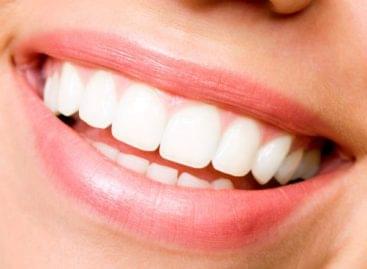It affects everyone: this is how we can protect ourselves against stress-related sleep disorders
Women are even more exposed to insufficient sleep caused by stress, as they are not spared by hormonal changes.
 Stress and sleep: these two factors go hand in hand. Those who sleep little become more stressed, while those who are stressed find it difficult to rest. This vicious circle can easily become an endless spiral, so it is worth finding a solution to our sleep problem as soon as possible.
Stress and sleep: these two factors go hand in hand. Those who sleep little become more stressed, while those who are stressed find it difficult to rest. This vicious circle can easily become an endless spiral, so it is worth finding a solution to our sleep problem as soon as possible.
Not all stress is bad, but most of it makes our lives miserable
We all experience some level of stress in our lives. In most cases, this affects our daytime, and in worse cases, our nighttime rest. “Stress is a complex state in which emotional, cognitive and biological factors also play a role. Of course, all of this can also be good, stimulating (eustress), when an external factor encourages us to, for example, finish work by a deadline because we know that we will receive recognition afterwards. However, its negative version, distress, which can cause anxiety, is more common. All of these can manifest themselves in various ways over time. In the short term (acute), episodically recurring or even chronically, in the long term,” highlights Dr. Magdolna Dombovári, neurologist and somnologist, who often encounters the role of stress in influencing sleep. “Stress affects our everyday lives, and often our sleep as well. It causes our body to produce cortisol, which triggers our body to switch to a defensive function. This can lead to several different problems: sleep time becomes shorter, sleep can become superficial, we feel tired and sleepless the next day. Blood pressure, heart rate problems, and eating attacks can occur. If this persists for a long time, we can talk about a stress-based sleep disorder, even insomnia, which definitely needs treatment,” adds the sleep expert at SomnoCenter Budapest.
Women in the crosshairs: much greater exposure to stress
The response to stress is completely individual: some people can handle the pressure placed on them more easily, while others suffer from it for days or weeks. Women are not in an easy position in this regard, as in their case hormonal changes can also cause a kind of stress, again affecting the quantity and quality of sleep. “Women are more prone to sleep less well when stressed. They tend to take things more easily and this affects their sleep more. Various hormonal changes are responsible for this. Our sleep changes during the menstrual cycle, as do estrogen and progesterone levels. Pregnancy is a period when expectant mothers sleep very well at the beginning, but then it becomes difficult towards the end of the third trimester. Caring for a newborn, the period of having a small child, menopause, are all changes in women’s lives that can act as stress and thus adversely affect our sleep,” emphasizes the sleep expert, who recommends that if our sleep is persistently insufficient, we keep a sleep diary and consult a specialist as soon as possible in order to find the right therapeutic method.
Related news
How to relieve autumn stress in the workplace
🎧 Hallgasd a cikket: Lejátszás Szünet Folytatás Leállítás Nyelv: Auto…
Read more >New Hungarian app supports employees’ mental well-being
🎧 Hallgasd a cikket: Lejátszás Szünet Folytatás Leállítás Nyelv: Auto…
Read more >Related news
(HU) Átadták a SIRHA Budapest 2026 Innovációs Termékverseny díjait
🎧 Hallgasd a cikket: Lejátszás Szünet Folytatás Leállítás Nyelv: Auto…
Read more >How does the forint exchange rate affect consumer prices?
🎧 Hallgasd a cikket: Lejátszás Szünet Folytatás Leállítás Nyelv: Auto…
Read more >HELL CITY has arrived, led by Michele Morrone
🎧 Hallgasd a cikket: Lejátszás Szünet Folytatás Leállítás Nyelv: Auto…
Read more >









